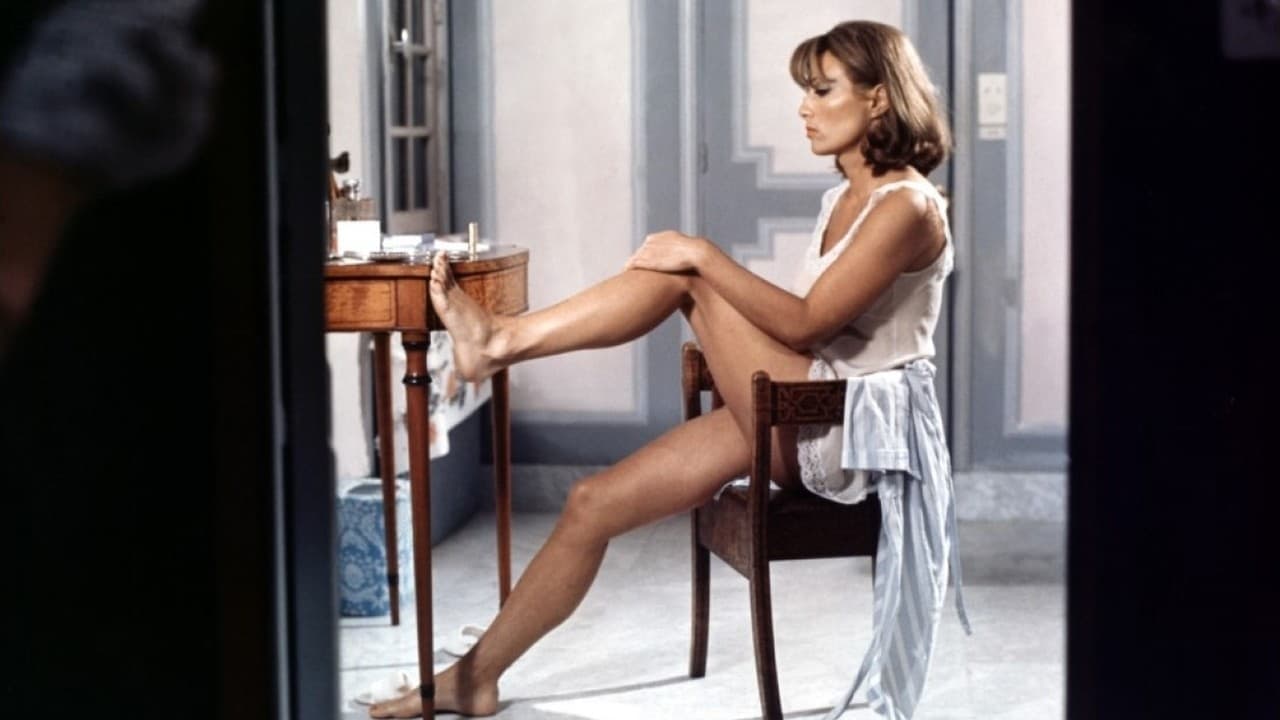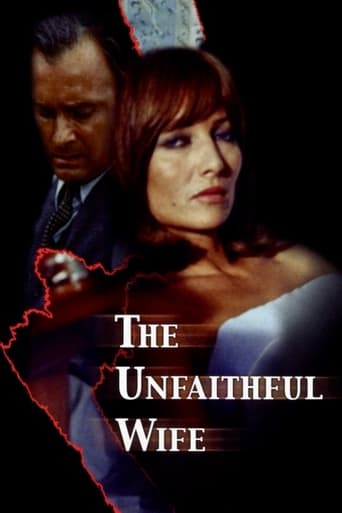

Highly Overrated But Still Good
... View MoreStory: It's very simple but honestly that is fine.
... View MoreOne of the most extraordinary films you will see this year. Take that as you want.
... View MoreBlistering performances.
... View MoreA very European tale of an upper-class Frenchfamily in comfortable circumstances. They get along well, love each other, and have a beautiful child. The only problem is that the wife (Audran) is bedding some other guy several afternoons a week, the husband (Bouqet) finds out about it and visits the lover, who greets Bouqet with a bemused rictus. Bouqet has an awkward exchange with him, bops him over the head with bust of Nefretiti, and disposes of the corpse in an algae-covered pond. Audran knows nothing of this, only that her afternoon lover has done a disappearing act. During two visits from suspicious but very polite police inspectors, husband and wife both deny having known the deceased. Audran later discovers that Bouquet has been lying -- she finds her boy friend's photo and address in the pocket of one of her husband's jackets. Since she loves her husband, she destroys the evidence of his crime. A third visit from the police ends ambiguously.Now, the French have a sense of how to do things avec élégance and indeed I doubt that this movie would have been made in Hollywood or even in France during the era of nouvelle vague. It's too deliberate, too slow, too artfully done. And we don't see anybody's brains spilled out all over the landscape. Director Chabrol has done a fine job but you need an episodic memory of more than five seconds to appreciate it.The performances too are vaguely European. Everything is smooth except during rare arguments, and I love to see the French lose their patience with one another. Audran is an attractive lady, indignant with the carefully poised questions of the police. Bouquet is equally controlled, with the central point of his upper lip dipping somehow into his lower lip, something like a Peruvian tapir or like my gastroenterologist, Dr. Pyloris.Someone criticized the scene in which the kid drinks a glass of champagne but when it comes to alcohol France is part of the Mediterranean tradition. Younger children may be given "red water" -- water mixed with wine. It's all highly ritualized and there's little drunkenness. The musical score is sparse but perfectly apt. The photography captures on film a rather nice city and an even nicer country estate where a man can spend time casually trimming his plants. The British translation eledes some of the more colorful expressions. A good job.
... View MoreYet another one of Claude Chabrol's slow, dark, deceptively calm psychological / crime thrillers, and as these things go, "La Femme Infidele" is probably one of his most successful efforts. There is one sequence in particular, the confrontation between Michel Bouquet and Maurice Ronet, that is absolutely riveting cinema - it will have you holding your breath. And there is also an amusing homage to Hitchcock (the car accident - jammed trunk scene). Bouquet is superb in this film - he maintains a friendly, calm exterior most of the time, but you can see that there's a whole range of emotions hidden behind it. Stéphane Audran looks great (those legs!), but her best scene comes near the very end: a long tracking shot that follows her and focuses on her face as it takes a "Mona Lisa"-type expression, with just a hint of a smile. I do have three objections about the film: 1) The title leaves little doubt as to how "fidele" "la femme" really is; the first 30 minutes might have played even better if we were less certain that Bouquet's suspicions weren't mere paranoia, 2) Audran's affair is not very developed, and her marriage does not look dysfunctional enough for her continued infidelity to be in some way justified; 3) The last shot is technically beautiful, but very inconclusive; personally I think the film should have ended one scene earlier. For an even more twisty-turny variation on a similar scenario, check out Chabrol's "Innocents With Dirty Hands". *** out of 4.P.S: Brigitte the secretary is hot as hell!!!
... View MoreWhat Michel Bouquet does in his role as the husband to Stephane Audran's title character can only be described as an acting tour-De-force. MAGNIFICENT! Audran is not bad herself, but a notch less than stellar. Or maybe her performance just pales in comparison to her co-star. As does pretty much everything else in the film. From a certain point onwards, it is Bouquet who becomes the co-auteur, as for as the viewer is concerned.The film has a very remarkable score, which Chabrol uses effectively as if both checking, and challenging the Hitchcockian legacy of pronounced scores in the thriller realm.With unmistakable, (still his kind of) nouvelle-vague elements, the film admirably reflects director's familiarity with the classic genre and its (then) modern subversion. With unmistakable, (still his kind of) nouvelle-vague elements, the film admirably reflects the director's familiarity with the classic genre and its (then) modern subversion. The economy and brilliance of shots is such that viewer cannot take eyes off screen, not for one sec. The last shot alone informs a good lot more than an average novella. And demands a separate essay I am not gonna write. However, it becomes quite clear early on that this auteur, unlike some others, is not at all that keen on subversion for the very sake of it.La Femme Infidele has all the bearings of a rebellion forgone, if you please. It definitely looks like the work of an auteur, but not just a rebel kind, but a mature mind, someone well on his way to become a real master of the medium: already he affords to be audacious, or flexible, every which way to fulfill demands posed by his art. This audacious flexibility in turn provides the auteur opportunity to comment, in his fashion, if not alter the rules of the genre that he is seen, here as well, rebelling against and compromising with.
... View More'The Unfaithful Wife' is really about a faithful husband, who will kill to save his marriage. This kind of fidelity is a chilling exercise of power - the film's many point-of-view shots are mostly his - with adultery a rebellion, a bid for freedom that must be crushed. It's not enough that Charles uncovers his wife's lover, he must sit on the bed they make love on, drink the same drink...Chabrol's most perfect film, where character inertia is expressed in blatant artifice, both in the home and in 'nature'; where a materialist filming of materialists conceals an austere spirituality, embodied in those Fateful policemen. Like his namesake Bovary, Charles sleeps when his exquisitely beautiful wife offers herself to him. He deserves what he gets.
... View More